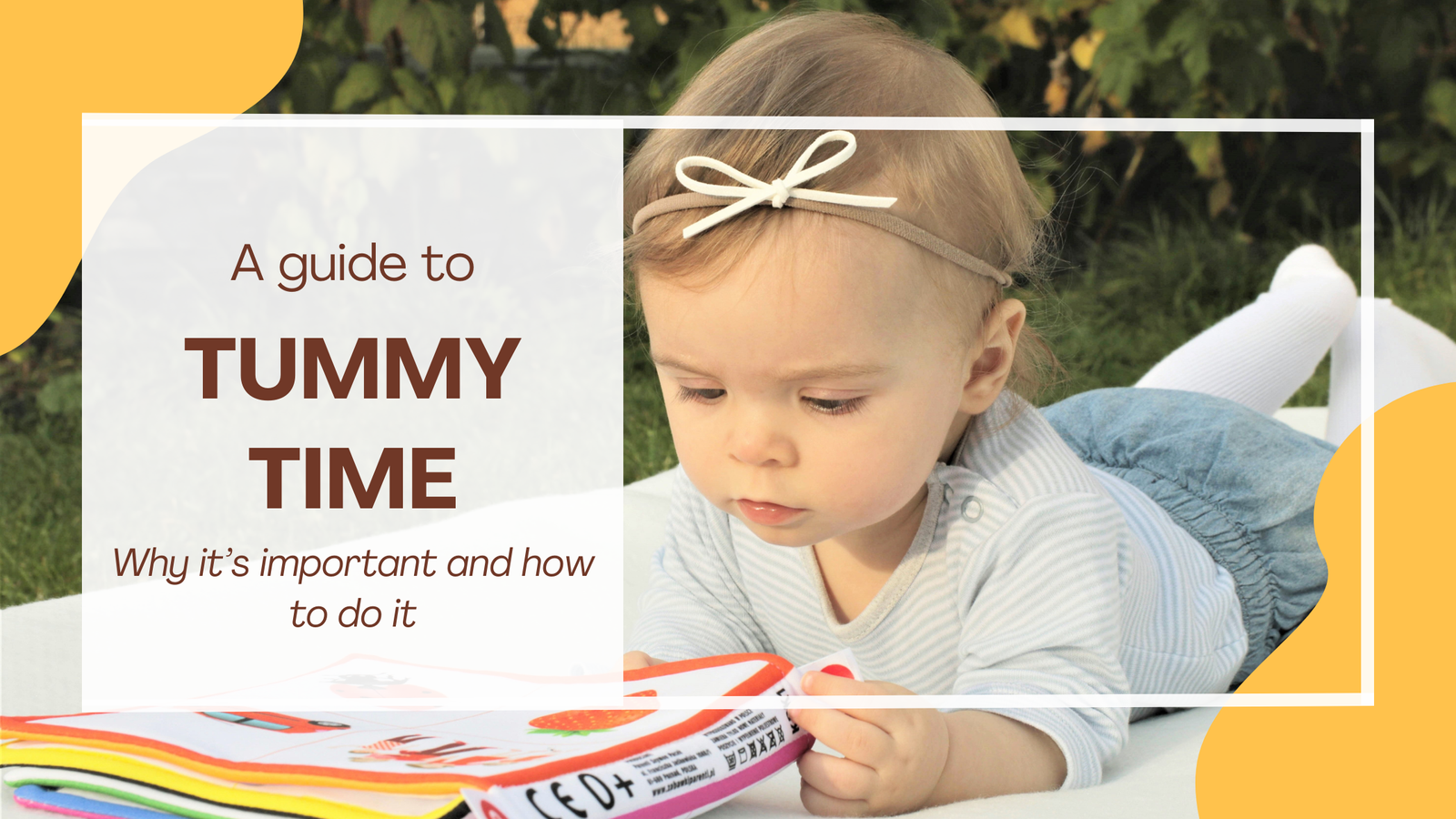Tummy time is more than just a playtime activity; it’s a crucial aspect of your baby’s development journey. As your little one grows and explores the world around them, giving them regular opportunities to be on their tummies lays the foundation for essential physical and cognitive milestones. There is a reason, after all, for everyone telling you to have your baby participate in regular tummy time. In this blog post, we’ll delve into the significance of tummy time and provide tips to make this experience enjoyable and beneficial for both you and your baby.
What is tummy time and why does it matter?
Tummy time refers to the period during which your baby spends time on their stomach while they’re awake and under supervision. You can start doing this with your newborn as soon as they come home from the hospital. This seemingly simple activity offers a multitude of benefits:
Physical Development
Tummy time helps strengthen the muscles necessary for head control, neck strength, and overall upper body strength. As your baby lifts their head, pushes up on their arms, and eventually rolls over, they’re building the foundation for future motor skills like crawling and sitting.
Preventing Flat Head Syndrome
Spending too much time on their back can lead to a flat spot on the back of your baby’s head, known as positional plagiocephaly. Tummy time reduces the risk of this condition by encouraging them to alternate their head position and engage different muscles.
Visual and Cognitive Development
When your baby is on their tummy, they’re exposed to a new visual perspective. This stimulates their curiosity as they explore their surroundings, strengthening their visual tracking skills and cognitive development.
Sensory Stimulation
Tummy time allows your baby to experience different textures, temperatures, and sensations against their skin. This sensory input contributes to their sensory development and enhances their tactile perception.
Tips for successful tummy time
Making tummy time an enjoyable experience requires patience and creativity. Here are some tips to help you make the most of this important developmental activity:
Gradual Start
Begin with short sessions, gradually increasing the duration as your baby becomes more comfortable. It is likely that, as a newborn, your baby will hate being on their tummy and cry throughout the entire session. Do not expect tummy time to last for hours in the beginning, and do not force your baby to stay on their tummy longer than they are comfortable. A few minutes, a few times a day can add up to a meaningful experience.

Comfortable Surface
Place your baby on a soft, clean, and safe surface like a play mat or a blanket on the floor. This provides a comfortable environment for exploration. If your baby is not comfortable, they will dislike tummy time even more. As your baby grows, make sure you also provide a large enough area for them to start moving around in.
Engaging Entertainment
Use colorful toys, mirrors, or objects with different textures to capture your baby’s attention and encourage them to lift their head and interact with their environment. Place objects in front of your baby, as well as to the sides so they can look in all directions.
Join tummy time
Get down on the floor with your baby, making eye contact and interacting with them. Talk about the items they look at, and move them around to engage in eye contact and concentration. This not only helps them feel secure but also turns tummy time into quality bonding time.
Prop them up
If your baby needs a little extra support during tummy time, you can place a rolled-up towel or small cushion under their chest to prop them up slightly. Breastfeeding pillows also work great for propping your baby up. You may also consider buying a tummy time pillow.
Varying Positions
While supervised, allow your baby to experience tummy time on your chest, lap, or even across your thighs. Tummy time does not have to always be on the floor. This can provide a change of scenery and keep the activity interesting.
Be Patient
Some babies might initially resist tummy time. Be patient and offer gentle encouragement, keeping the experience positive and stress-free.
Consistency
Aim for regular tummy time sessions throughout the day. Consistency helps your baby become accustomed to the activity and reap its benefits more effectively.
Conclusion
Tummy time is an investment in your baby’s future physical and cognitive growth. By incorporating this activity into your daily routine, you’re laying the groundwork for their developmental milestones while creating cherished moments of bonding and exploration. Remember that every baby is unique, so adjust the approach to match your baby’s preferences and comfort level.



